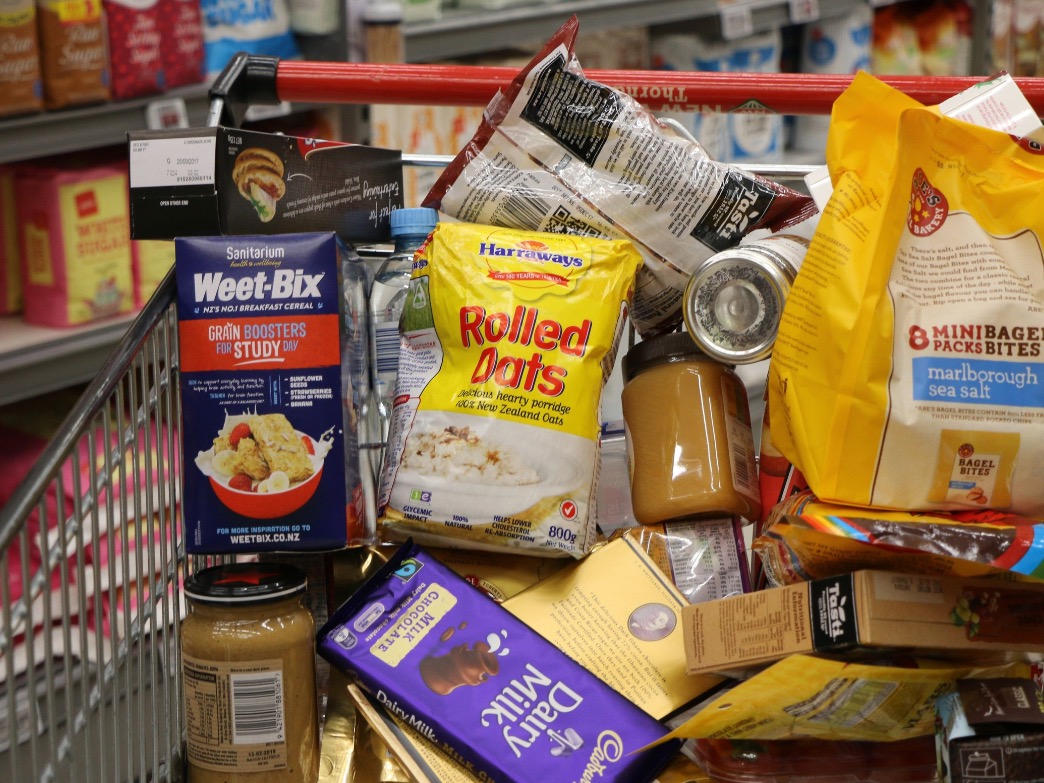 19th April 2024 Employment / NZFGC
19th April 2024 Employment / NZFGCEmployer registrations are now open for the 2024/25 FMCG Futures Summer Intern program.
 27th February 2024 Foodstuffs / NZFGC
27th February 2024 Foodstuffs / NZFGCThe industry group says suppliers are being subjected to time pressures, ‘take it or leave it’ conditions, or ‘negative consequences’ if they don’t accept RGR agreements.
 22nd February 2024 Foodstuffs / NZFGC
22nd February 2024 Foodstuffs / NZFGCFood manufacturers are canvassed about the impact it could have on prices and the opportunities that might be at risk.
 22nd February 2024 Foodstuffs / NZFGC
22nd February 2024 Foodstuffs / NZFGCThe association joins the chorus of critics raising questions over both the existing state of grocery competition, and what it might look like post any Foodstuffs merger.
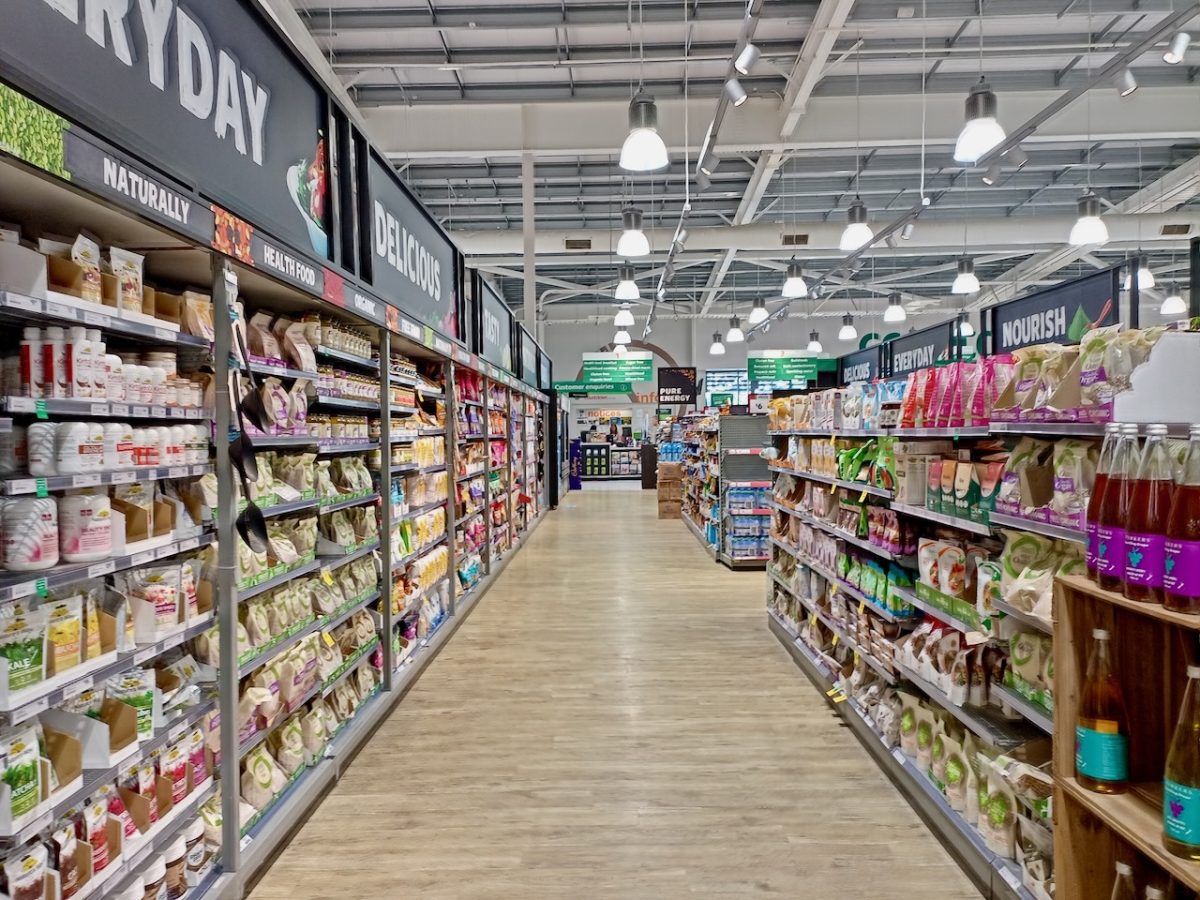 6th December 2023 Grocery Code / NZFGC
6th December 2023 Grocery Code / NZFGCLessons from across the ditch on how NZ’s new grocery code can help improve the industry – but only if suppliers choose to use it.
 29th November 2023 Grocery / NZFGC
29th November 2023 Grocery / NZFGCThe dates for a final 2023 virtual Code of Conduct training session have been confirmed by the New Zealand Food & Grocery Council.
 9th November 2023 NZFGC
9th November 2023 NZFGCThe New Zealand Food and Grocery Council will be heading to Wellington for its 2024 conference.
 8th November 2023 Foodstuffs / NZFGC
8th November 2023 Foodstuffs / NZFGCCEO Raewyn Bleakley says the industry group will “actively participate” in the consultation process regarding the proposed merger.
 2nd November 2023 Grocery Commissioner / NZFGC
2nd November 2023 Grocery Commissioner / NZFGCNZ’s first grocery commissioner calls on industry to support new entrants or they could become subject to a wholesale code of conduct.
 1st November 2023 NZFGC
1st November 2023 NZFGCFood and beverage sector stakeholders from around the country are gathering in Sydney for the New Zealand Food & Grocery Council’s annual conference, which falls days after Supie’s collapse.
 3rd October 2023 Election 2023 / NZFGC
3rd October 2023 Election 2023 / NZFGCWith the countdown on to the general election on October 14, New Zealand Food & Grocery Council chief executive Raewyn Bleakley lays out first actions depending on the outcome.
 26th September 2023 NZFGC / Regulation
26th September 2023 NZFGC / RegulationTomorrow is the final day to register for the New Zealand Food & Grocery Council webinar on the new Grocery Supply Code of Conduct.
 22nd September 2023 NZFGC
22nd September 2023 NZFGCThe New Zealand Food and Grocery Council is offering grocery suppliers a comprehensive training programme on the Grocery Supply Code of Conduct.
 20th September 2023 Health / NZFGC
20th September 2023 Health / NZFGCNZFGC boss Raewyn Bleakley is open to exploring options when it comes to potential government regulation in the food space but wants more detail.
 1st September 2023 Competition / NZFGC
1st September 2023 Competition / NZFGCNZFGC boss Raewyn Bleakley says the long-awaited code will help create “a better and fairer grocery sector”.
 21st July 2023 NZFGC
21st July 2023 NZFGCThe New Zealand Food & Grocery Council is hosting an interactive workshop on unconscious bias next week.
 13th July 2023 Events / NZFGC
13th July 2023 Events / NZFGCThe Ministry for the Environment and the New Zealand Food and Grocery Council are hosting a webinar on the Waste Action and Investment Plan.
 19th June 2023 NZFGC
19th June 2023 NZFGCWhen the long-awaited draft code was released, two things were immediately apparent – and one surprise.
 13th June 2023 Marketing / NZFGC
13th June 2023 Marketing / NZFGCSubscribe now to enjoy unlimited access to Food Ticker, New Zealand’s new food and beverage industry trade daily. Thank you for visiting Food Ticker. Click here for our subscription packages. We MORE »
 23rd May 2023 Advertising / NZFGC
23rd May 2023 Advertising / NZFGCThe New Zealand Food and Grocery Council is pushing for changes to the proposed advertising codes, arguing that as they stand they inhibit innovation and make trans-Tasman operations unwieldy.
 19th May 2023 Budget 2023 / NZFGC
19th May 2023 Budget 2023 / NZFGCThe govt’s ‘bread and butter’ budget delivers snacks for some but bare cupboards for others, say industry groups.
 15th May 2023 NZFGC
15th May 2023 NZFGCThe New Zealand Food & Grocery Council is raising its membership fees for the first time in 20 years.
 28th April 2023 NZFGC / Regulation
28th April 2023 NZFGC / RegulationThe New Zealand Food & Grocery Council has partnered with Australian consultancy, NextGen Group, to provide support for its members ahead of the launch of the new Grocery Supply Code.
 20th April 2023 NZFGC
20th April 2023 NZFGCBoard nominations are open for the New Zealand Food & Grocery Council.
 30th March 2023 NZFGC / Recycling
30th March 2023 NZFGC / RecyclingKerbside recycling changes are set to take place before the Plastic Packaging Product Stewardship Scheme work concludes, raising concerns at the NZFCG.
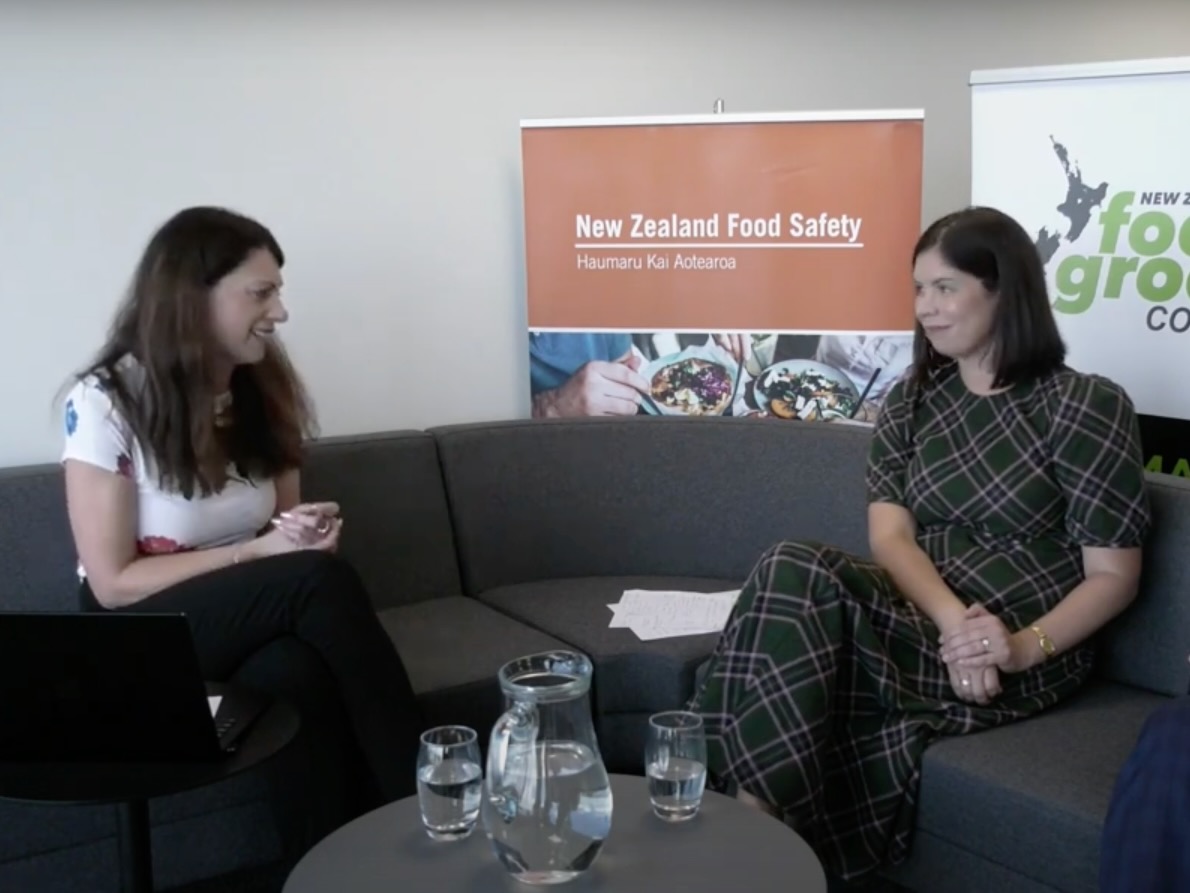 27th March 2023 Employment / NZFGC
27th March 2023 Employment / NZFGCThe video of the second session in the New Zealand Food & Grocery Council webinar series to help food business leaders through the immediate and longer-term impacts of Cyclone Gabrielle is now available.
 22nd March 2023 ITP / NZFGC
22nd March 2023 ITP / NZFGCNew Zealand could take a leaf out of Australia’s book when it comes to strengthening the country’s overall food innovation system, according to the NZFGC’s draft ITP submission.
 10th March 2023 NZFGC
10th March 2023 NZFGCThe psychological impact of a disaster, how to recognise mental distress and how to cope with it formed the backbone of the first webinar designed to help FMCG leaders impacted by Cyclone Gabrielle.
 1st March 2023 Events / NZFGC
1st March 2023 Events / NZFGCThe webinar series is designed to help FMCG leaders through the “significant” immediate and longer-term impacts of Cyclone Gabrielle.
 9th February 2023 NZFGC / Supply Chain
9th February 2023 NZFGC / Supply ChainA list of potential options to help bolster New Zealand’s fragile food-grade CO2 supply has been tabled with government officials by the New Zealand Food & Grocery Council.
 1st February 2023 NZFGC / Woolworths
1st February 2023 NZFGC / WoolworthsThe Countdown owner wants obligations on suppliers to participate in the new wholesale regime.
 25th January 2023 NZFGC / Wholesale
25th January 2023 NZFGC / WholesaleFoodstuffs and Woolworths are being forced to set up independent wholesale divisions but suppliers should not be forced to take part, says the association.
 18th January 2023 NZFGC / Supply Chain
18th January 2023 NZFGC / Supply ChainThe NZ Food and Grocery Council has warned that some producers will face shut-downs as a result of the worsening CO2 shortage affecting the country.
 17th January 2023 NZFGC / Supply Chain
17th January 2023 NZFGC / Supply ChainThe impact of ongoing CO2 shortages on the food industry has led the New Zealand Food and Grocery Council to establish a pan-industry group to liaise on the escalating issue.
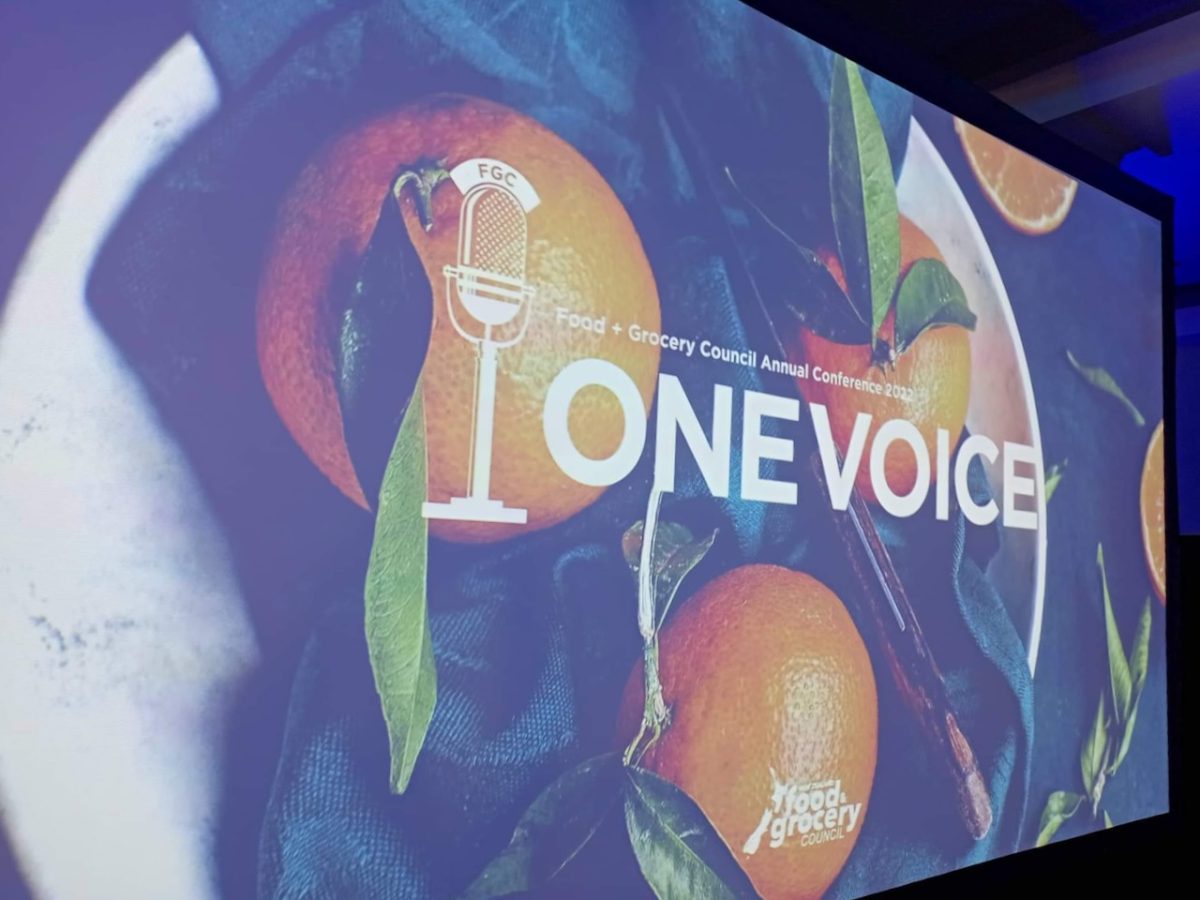 3rd November 2022 NZFGC
3rd November 2022 NZFGCFood and beverage sector stakeholders from around the country have descended on Queenstown for the New Zealand Food & Grocery Council annual conference.
 2nd November 2022 NZFGC
2nd November 2022 NZFGCNZFGC’s new boss on guiding principles, headwinds, and silver bullets ahead of the association’s annual conference in Queenstown this week.
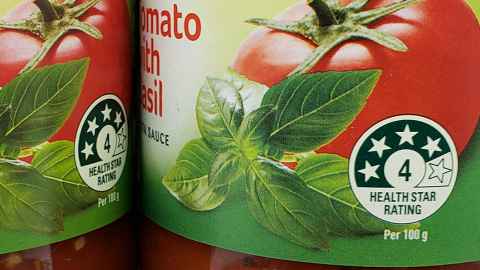 12th September 2022 Health / NZFGC
12th September 2022 Health / NZFGCFood & Grocery Council member companies are continuing to bring more food products into the Health Star Rating system, with the tally coming in at 3223 at the end of June.
 9th August 2022 Foodstuffs / NZFGC
9th August 2022 Foodstuffs / NZFGCFood and beverage manufacturers cannot continue to absorb rising costs in the face of “a perfect storm” of increases, according to the New Zealand Food and Grocery Council.
A new partnership between the New Zealand Food & Grocery Council and the Australian Packaging Covenant Organisation is set to increase the recycling of packaging in Aotearoa.
 23rd June 2022 IRI / NZFGC
23rd June 2022 IRI / NZFGCAlmost all F&B manufacturers plan to put up prices to combat rising costs, according to a survey by IRI and the NZFGC.
 8th March 2022 ComCom / NZFGC
8th March 2022 ComCom / NZFGCNZFGC labels the grocery report a victory for suppliers, but says it is now up to the government to respond.
 17th February 2022 Covid-19 / NZFGC
17th February 2022 Covid-19 / NZFGCFood sector stakeholders have labelled the government’s rapid antigen test distribution plan “unreliable” as concerns grow over access to RATs.
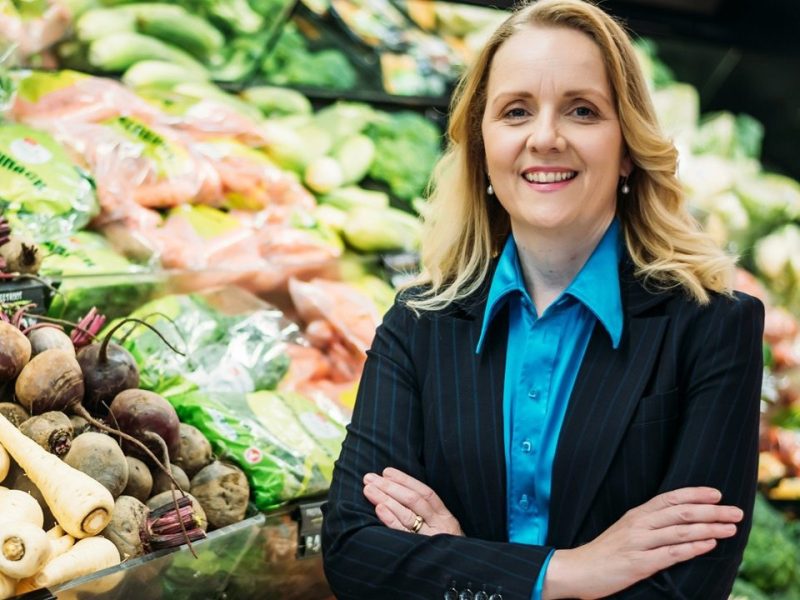 2nd December 2021 NZFGC / Perspectives
2nd December 2021 NZFGC / PerspectivesCovid, ComCom plus business as usual made 2021 a testing year, but NZFGC boss Katherine Rich says prioritising the creation of a Grocery Code would be a strong start in 2022.
 20th October 2021 Foodstuffs / NZFGC
20th October 2021 Foodstuffs / NZFGCFSNI claims it is becoming more customer driven but some suppliers will suffer significant shelf-space reductions.
 20th October 2021 ComCom / NZFGC
20th October 2021 ComCom / NZFGCIn an open letter to Parliament, the unlikely allies call on MPs to support a “strong intervention” into NZ’s grocery market.
 20th October 2021 Conference / NZFGC
20th October 2021 Conference / NZFGCThe New Zealand Food & Grocery Council has moved its annual conference to 11-13 May 2022 at the Millennium Hotel in Queenstown.
 20th September 2021 NZFGC / Supermarkets
20th September 2021 NZFGC / SupermarketsPrivate labels do more harm than good for both suppliers and consumers in highly concentrated markets, according to research commissioned by the NZFGC.
 15th September 2021 Foodstuffs / NZFGC
15th September 2021 Foodstuffs / NZFGCNZFGC’s boss says FSNI has thrice refused to sign up to a code of conduct, but Rich welcomed a “first step” towards a more competitive market.
 6th September 2021 NZFGC
6th September 2021 NZFGCNew Zealand’s grocery supply chain is holding up very well despite the increased pressure of the lockdowns and the closure of some supermarkets in Auckland, according to NZFGC boss Katherine Rich.
 26th August 2021 Covid-19 / NZFGC
26th August 2021 Covid-19 / NZFGCThe council’s CEO has warned that food manufacturing could soon be critically impacted by staff shortages.
 10th August 2021 NZFGC / Regulation
10th August 2021 NZFGC / RegulationNew Zealand Food & Grocery Council has submitted comments of the regulatory redesign of Animal Products and Wine Regulations respectively.
 9th August 2021 NZFGC
9th August 2021 NZFGCThe New Zealand Food & Grocery Council has submitted comments as part of public consultation into a best practice guide for serving sizes being undertaken by Australia’s Healthy Food Partnership
 29th July 2021 ComCom / NZFGC
29th July 2021 ComCom / NZFGCReport reflects imbalance of power in sector which has allowed retailers to push excess costs, risks, and uncertainty onto suppliers, FCG says.
 28th July 2021 ComCom / NZFGC
28th July 2021 ComCom / NZFGCNZFGC boss Katherine Rich repeats calls for a mandatory Grocery Code of Conduct on the eve of the draft ComCom report being released.
 27th July 2021 NZFGC
27th July 2021 NZFGCThe New Zealand Food & Grocery Council has not raised any objection to the proposal to allow an already permitted food additive sweetener, namely steviol glycosides, to be produced by fermentation from a genetically modified Yarrowia lipolytica strain.
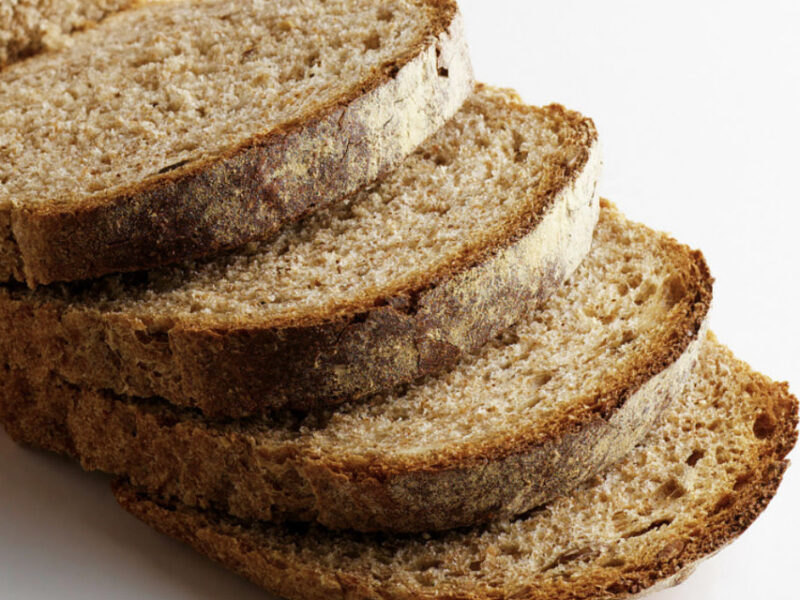 9th July 2021 NZFGC
9th July 2021 NZFGCThe New Zealand Food & Grocery Council said it will support its members to transition to the mandatory addition of folic acid to bread by 2023, following the governments announcement yesterday.
 29th June 2021 NZFGC / Packaging
29th June 2021 NZFGC / PackagingThe association welcomes government’s moves to phase out problem plastics and some single-use plastics within four years, but warns that a smooth transition by some food producers could be hindered by global freight issues.
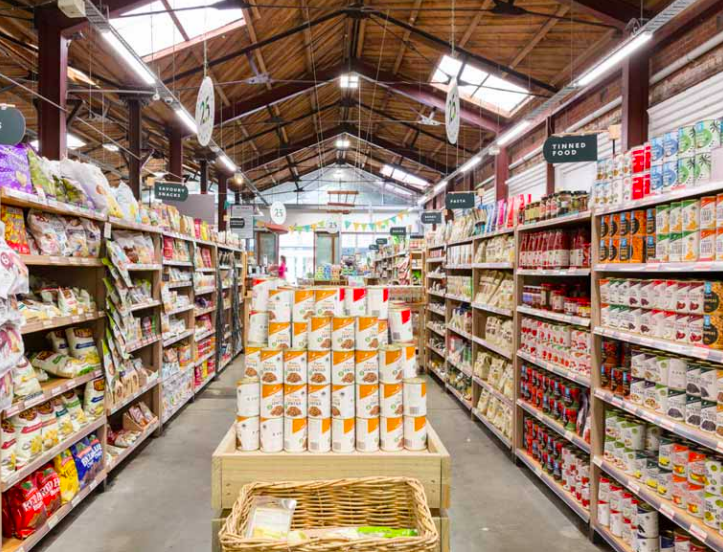 25th June 2021 NZFGC / Organics
25th June 2021 NZFGC / OrganicsMPI is consulting on issues such as the requirement for evaluation of organic food producers, proposed organic management plans, and the need for a listed public register of organics companies.
 9th June 2021 NZFGC
9th June 2021 NZFGCThe New Zealand Food & Grocery Council has released its submissions on menu labelling and the food processing aid enzyme β-Galactosidase from the Bacillus subtilis.
 21st May 2021 NZFGC
21st May 2021 NZFGCThe global supply network is under unprecedented pressure and New Zealand faces a double dose due to distance and port issues, according to the New Zealand Food and Grocery Council.
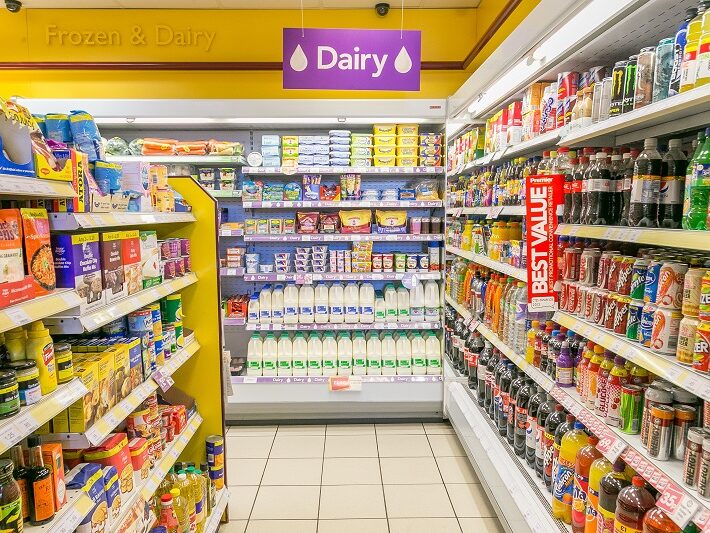 27th April 2021 ComCom / NZFGC
27th April 2021 ComCom / NZFGCThe government’s probe into the $21bn grocery sector heats up as rivals open fire in cross-submissions.
 1st March 2021 NZFGC / Supermarkets
1st March 2021 NZFGC / SupermarketsIn its submission to ComCom, the NZFGC says there is also considerable use of buyer power to exclude competition.
 14th December 2020 NZFGC
14th December 2020 NZFGCThe council urges the Govt to ensure other options are also available.
 11th December 2020 NZFGC
11th December 2020 NZFGCThe association says there is “no real solution” for products to be dealt with in homes.
 10th December 2020 Covid-19 / NZFGC
10th December 2020 Covid-19 / NZFGCKatherine Rich calls for a national grocery code.
© 2024 Business Media Network Ltd
Website by Webstudio